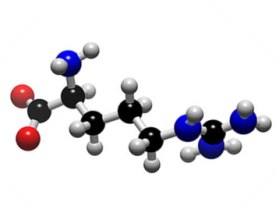Functional amino acids regulate key metabolic pathways

Functional amino acids play a critical role in the development of both animals and humans, according to a Texas AgriLife Research scientist.
In a journal article appearing in the American Society for Nutrition (Advances in Nutrition 1:31-37, 2010), Dr. Guoyao Wu, AgriLife Research animal nutritionist and senior faculty fellow in the department of animal science at Texas A&M University, calls for scientists to "think out of the box" and place more emphasis on this area of study.
"We need to move forward and capitalize on the potential of functional amino acids in improving health and animal production," he said.
Maximise performance
A functional amino acid is an amino acid that can regulate key metabolic pathways to improve health, growth, development and reproduction of animals and humans, Wu said.
"This involves cell signalling through amino acids and their metabolites, and the metabolic pathways may include protein synthesis, antioxidative reactions and oxidation of energy substrates," he said.
"A functional amino acid can be either a ‘nonessential’ or an ‘essential’ amino acid."
Past research emphasis has focused primarily on essential amino acids. However, Wu says both essential amino acids and non-essential amino acids should be taken into consideration.
"This is important when formulating balanced diets to maximize growth performance in livestock species, poultry and fish," he said.
Arginine basics
Wu’s previous research discovered that arginine, an amino acid, contributes many positive benefits in growth and embryo development in pigs, sheep and rats.
Arginine also aids in fighting obesity. Wu has identified this as an important area for expanded research on new amino acids and health.
Wu also said that dietary supplementation with arginine can help improve meat quality in pigs prior to slaughter.
The two top scientific discoveries in the field of amino acids and health over the past two decades are nitric oxide synthesis from arginine and the role of amino acids in cell signalling.
Regulating metabolic pathways
"An important area of research in the next few years may be to study the molecular and cellular mechanisms whereby some amino acids (e.g., arginine) can regulate metabolic pathways in animals and humans," he said.
He said "unquestionably" recent advances in understanding functional amino acids are "expanding our basic knowledge of protein metabolism and transforming practices of nutrition worldwide."
Though nutritional studies conducted on animals have benefited human health, Wu suggests that caution should be taken to "extrapolate animal data to humans" as dietary requirements differ from one species to another.











